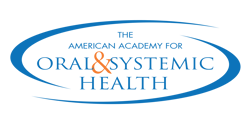The Biggest Wound: Oral Health in Long-Term Care Residents
Poor oral hygiene has been associated with many diseases, including cardiovascular diseases such as stroke, Alzheimer’s disease, respiratory ailments such as pneumonia, and periodontal disease. In long-term care (LTC) facilities, residents often need help with oral care, but rarely receive it. When help is provided, it generally comes from nursing assistants, who often do not have proper training on managing oral health issues in dependent adults and do not know the importance of proper oral hygiene in this population. In nursing assistant textbooks, which are generally written by nurses without input from dental hygienists, oral care discussions are relegated to sections on cosmetic care and often make unrealistic recommendations. In this article, the author provides a review of the structures of the tooth and gums; discusses periodontal disease and its implications; makes recommendations to improve the textbooks for nursing assistants, such as by moving oral care into its own chapter; and discusses the role of the dental hygienist in improving the oral and overall health of LTC residents.
Over the last 15 years, evidence demonstrating the mouth as the missing link to better health has been mounting. A study by Emory University and the Centers for Disease Control and Prevention found that people who floss their teeth daily live an average of 6.4 years longer than those who do not.1 Flossing eliminates bacteria, which can cause infections and periodontal disease, both of which can contribute to conditions that result in considerable morbidity and mortality. While some people go to great pains and expense to maintain their oral health, allowing them to keep their teeth longer, oral health maintenance becomes increasingly challenging and less of a priority among the elderly.
In long-term care (LTC) facilities, oral care receives relatively little attention, and as oral hygiene languishes, problems start to occur. This article provides an overview of the oral cavity and includes a short lesson on the effects of oral health on the body. This is a lesson that the dental and medical fields are currently relearning. For quite some time, dentistry has focused on restoring the function of teeth, forgetting in the process that dentistry is actually a medical specialty. The article also makes recommendations to improve the textbooks for nursing assistants, who are often charged with managing the oral health of LTC residents, and discusses the need for more involvement from dental hygienists in the LTC setting.
